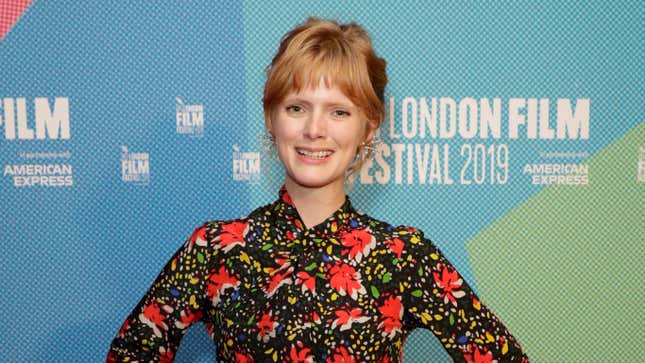

Saint Maud, the debut directorial feature from director Rose Glass, was the last movie I saw in a theater (well, a screening room) before the pandemic began. The film follows Maud (Morfydd Clark), a young nurse with a vaguely traumatic past who is hired to take care of Amanda (Jennifer Ehle), a retired dancer with cancer who stays holed up in a creaky old house in a seaside town. Amanda is a vibrant bohemian, filling what are the last years of her life with parties and hook-ups, as a sour Maud, a recent convert to Catholicism, looks on with contempt. But Maud isn’t just religious, rather she talks to God, or so she believes she does. Visions and violent spasms that knock around in Maud’s mind and body have convinced her that she is not only a vessel for God’s wisdom, but that must “save” Amanda from sin, no matter the cost.
A creepy horror film about the crossed wires between madness and extremist religious devotion, Saint Maud toys with a history of martyrs and saints who believed they were in conversation with God. Here Glass talks to Jezebel about what inspired the film and creating an unreliable narrator with logic.
This interview is edited and condensed for clarity.
JEZEBEL: Where did Saint Maud’s story come from?
ROSE GLASS: My brain. [Laughs] I think it is an amalgamation of stuff that was just sort of floating around and that I’m interested in. I was just finishing film school [and] came up with the idea of doing a film which is kind of a two-hander between a young woman and a voice in her head. I think at the time I was doing research into voice hearing, into the different conditions and experiences that might lead to that and sort of the different two roles it can play in people’s lives.
I just always been interested in the divide between the sort of weird, messed up private universe that we all have going on in our heads and how sort of radically different that can sometimes be from how we present ourselves to the rest of the world around us and how the rest of the world sees us. The fact that we’re all given the same world, but we’re stuck in these weird flesh body things and we all experience reality so subjectively.
Obviously Maud is an unreliable narrator and it’s hard for viewers to know what she’s seeing is real or self-manifested. What was your approach to creating a character like Maud and depicting her visions? When you’re trying to portray that on screen, can you tell me about your approach to that balance between visualizing what was going out with her and that kind of ambiguity?
-

-

-

-

-

-

-

-

-

-

-

-

-

-

-

-

-

-

-

-

-

-

-

-

-

-

-

-

-

-

-

-

-

-

-

-

-

-

-

-








































